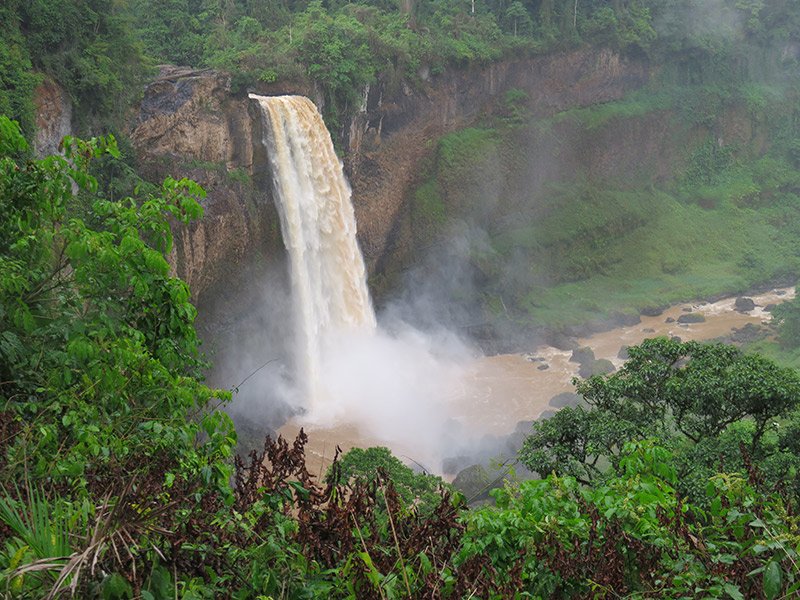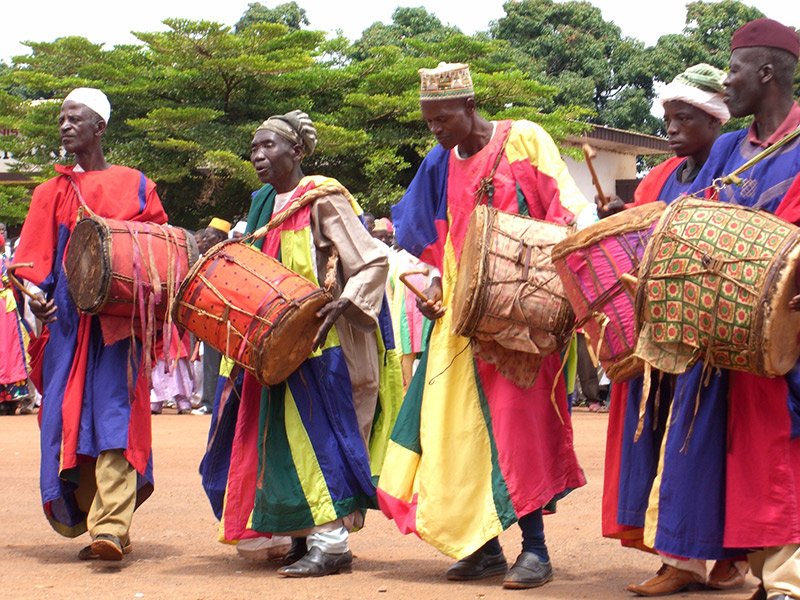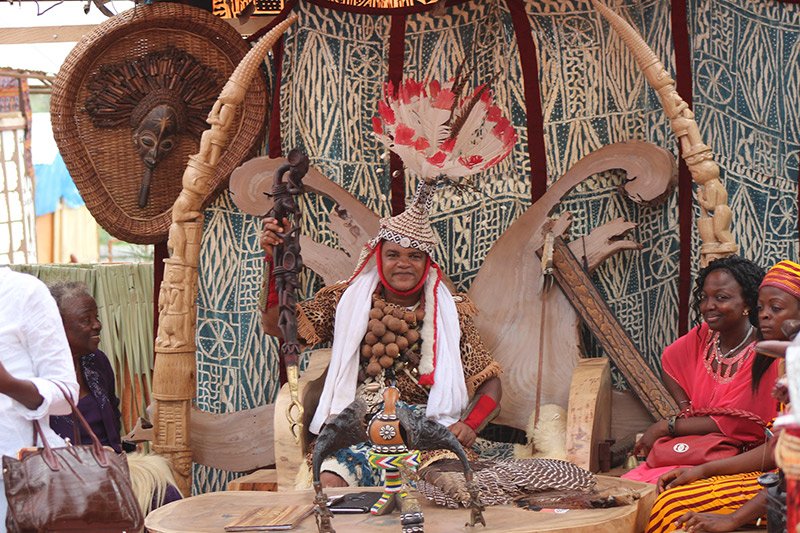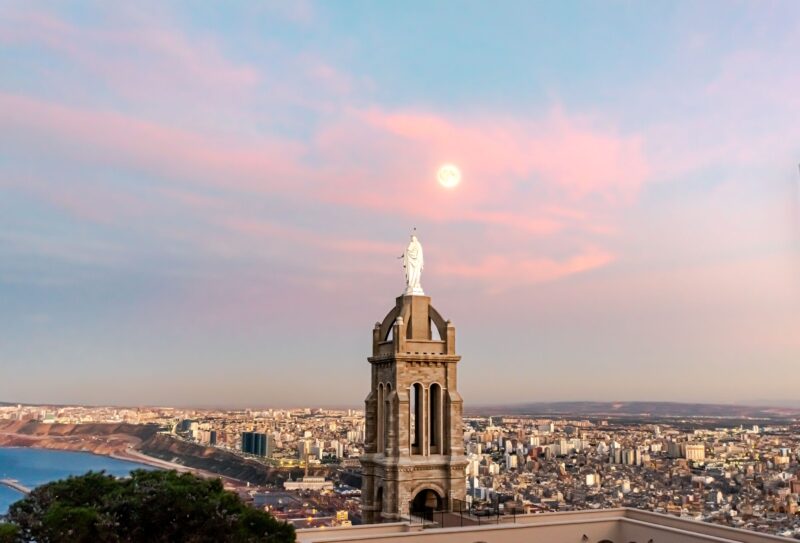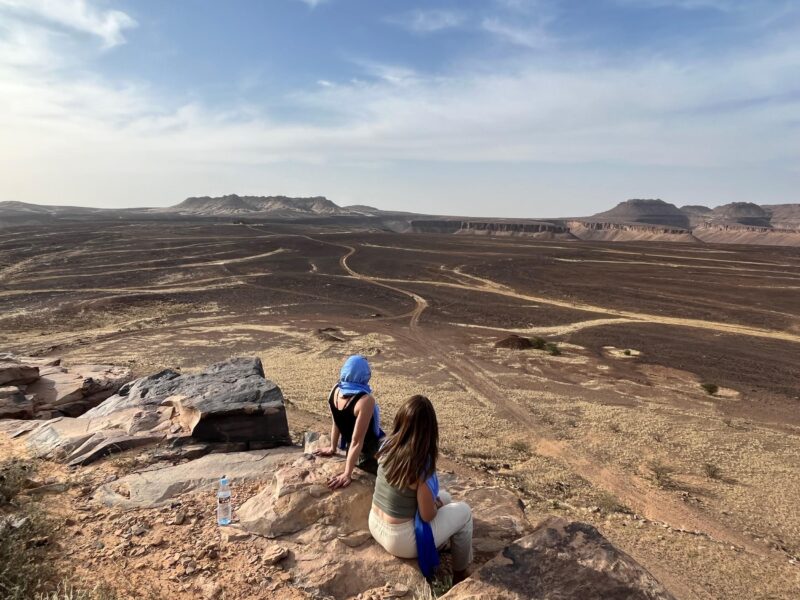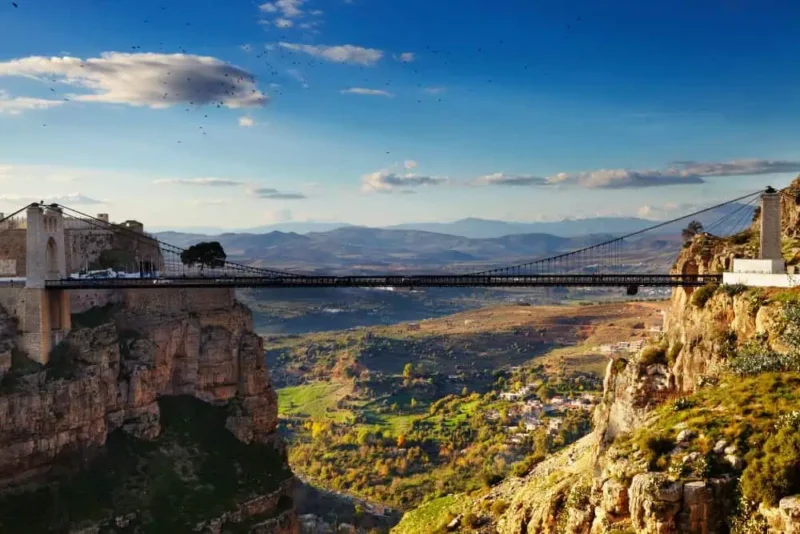| Tour Code | Start | End | Trip Status | Pricing Per person |
|---|---|---|---|---|
| CKW/180126 |
Jan 18, 2026
Sunday |
Jan 31, 2026
Saturday |
Guaranteed |
£2,855.00
Single Room Supplement: £385.00 |
| CKW/220326 |
Mar 22, 2026
Sunday |
Apr 04, 2026
Saturday |
Guaranteed |
£2,855.00
Single Room Supplement: £385.00 |
| CKW/221126 |
Nov 22, 2026
Sunday |
Dec 05, 2026
Saturday |
Please Contact Us for Availability |
£2,855.00
Single Room Supplement: £385.00 |
| CKW/211127 |
Nov 21, 2027
Sunday |
Dec 04, 2027
Saturday |
Please Contact Us for Availability |
£2,855.00
Single Room Supplement: £385.00 |
Kingdoms of Cameroon
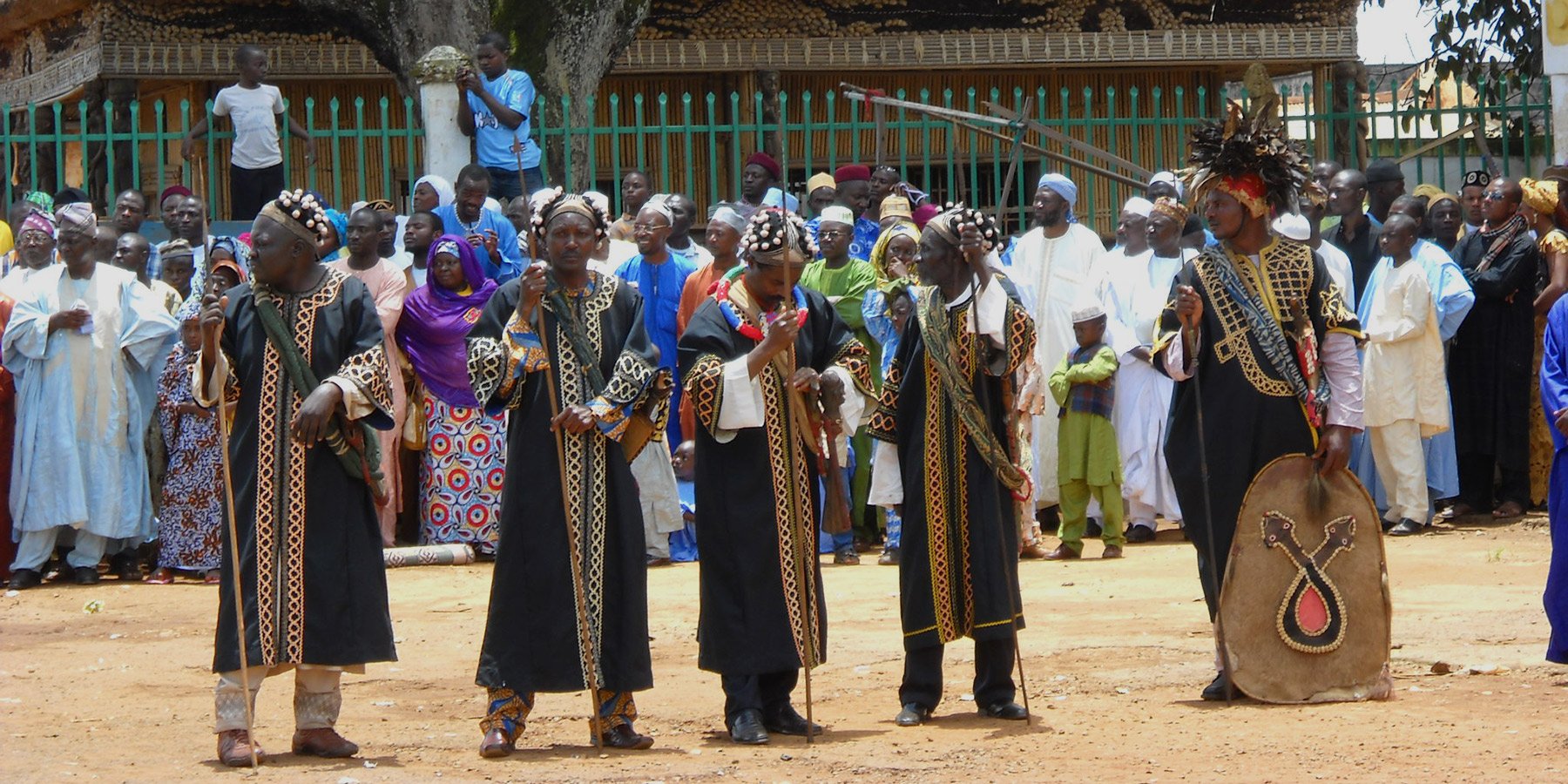
Between the mighty Congo Basin and the Atlantic Ocean lies a land of untainted equatorial rainforest where rare primates still roam, and local communities pass on timeless skills in villages little changed for centuries. To explore this remarkable country through a carefully planned Cameroon tour is to truly immerse yourself in its rich and vibrant culture, meeting deeply welcoming people and witnessing natural wonders that leave a lasting impression. From volcanic mountain ridges and broad, glassy rivers to dense forest canopies alive with rare wildlife and golden, palm-fringed beaches, Cameroon is a destination that quietly steals your heart.
Arrival and departure transfers
Overland transport throughout with professional driver
All accommodation
Services of English-speaking guide / tour leader
Meals as listed, B – Breakfast, L – Lunch, D – Dinner
Entrance fees for sites listed as part of the itinerary
International flights (, contact , us, for expert advice and a quote)
Any airport taxes
Travel Insurance
Visa – when required
Drinks
Items of personal nature
Tips (Discretionary)
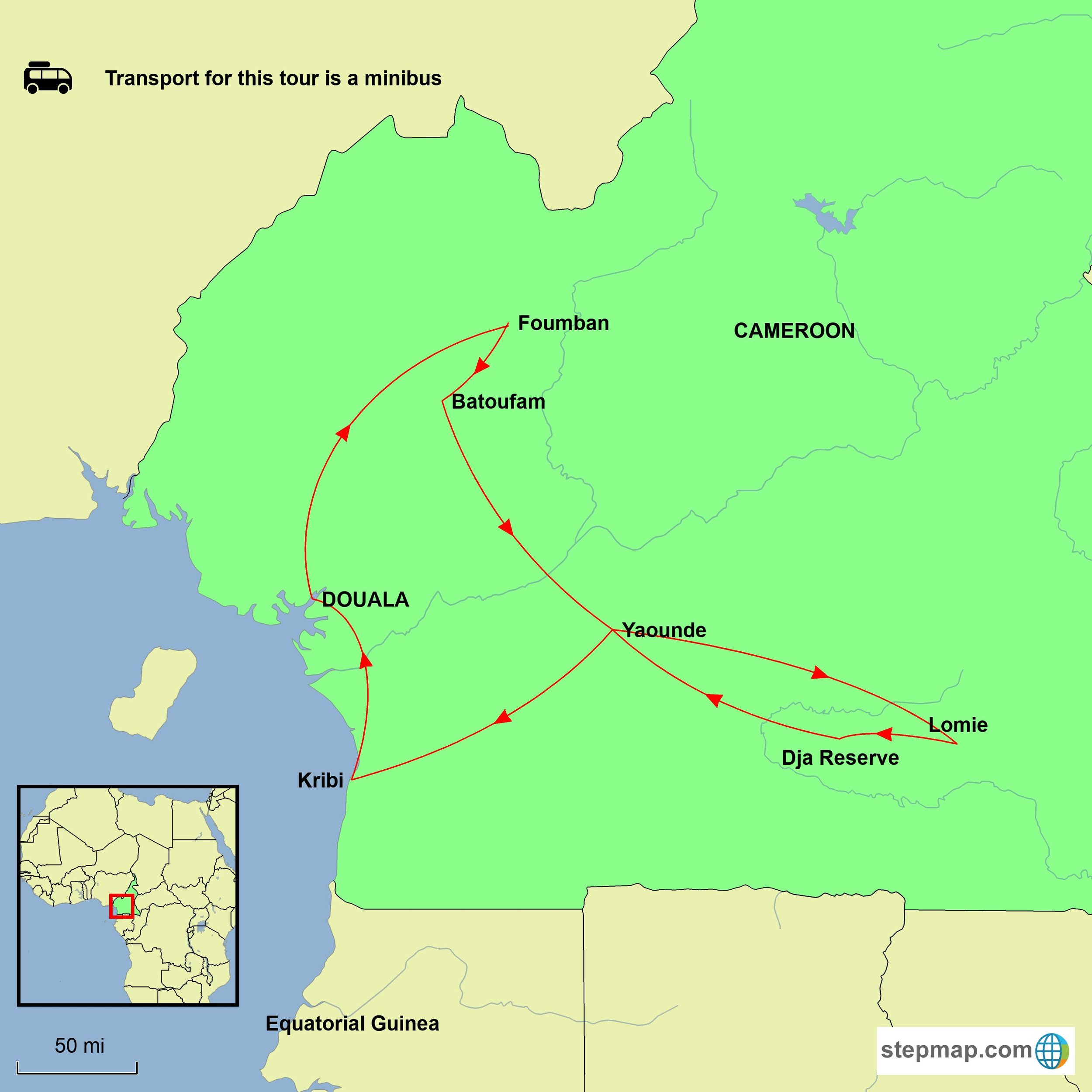
Arrive in Douala and explore the vibrant city before journeying through Cameroon’s lush landscapes, plantations, and waterfalls. Visit traditional Bamileke and Bororo villages, explore cultural gems like Foumban’s royal palace, and tour the capital, Yaoundé. Discover endangered primates at Mefou and Douala-Edea sanctuaries, and cruise the Nyong River. Spend immersive days with the Ba’Aka people in the Dja Reserve, learning about their forest lifestyle. End the trip in coastal Kribi, with a boat ride to the Lobe Falls before returning to Douala. A unique journey through diverse cultures, wildlife, and history.
Immersive Stay with the Ba’Aka People
Spend two days in a remote village learning traditional forest survival techniques, hunting, and local folklore.
Visit to the Ekom Waterfalls
See one of Cameroon’s most beautiful natural sites, the 80-metre high Ekom Falls near the Manengouba Mountains.
Exploration of Foumban
Discover the rich cultural heritage of the Bamoun people, including their royal palace, museums, and artisan workshops.
Nyong River Eco-tour & Primate Sanctuary
Take a pirogue ride through rainforest and visit Mefou Sanctuary to see rescued chimpanzees and gorillas.
Relaxation in Kribi & Visit to Lobe Falls
Wind down on the coast with a boat ride to see the rare Lobe Waterfalls that plunge directly into the Atlantic Ocean.
Download the Information Pack
To download the tour full dossier, which includes a complete day-by-day itinerary breakdown and detailed tour information, fill in the details below.

Foreign Office Travel Warnings Before booking your tour, please familiarise yourself with the country specific information provided by the UK’s Foreign, Commonwealth and Development Office (FCDO) – www.gov.uk/foreign-travel-advice. This includes important information such as latest immigration requirements, and details of any travel advisories. We constantly monitor the advice posted by the FCDO. In particular we will always advise clients of any travel warnings. At present there are no warnings against travel to the parts of Cameroon that we visit on this tour. Please feel free to contact us should you have any specific concerns or would like to know in detail what measures are being taken to ensure visits remain trouble free and without incident. It should be noted that this information applies to British citizens. Other nationals are asked to check the current position of their respective government. Visa Information At the time of writing British, US and Australian nationals require a visa for a tourist visit to Cameroon. For further details please visit the applicable website shown below. British Nationals – www.gov.uk/foreign-travel-advice US Nationals – travel.state.gov/content/travel/en/international-travel.html Australian Nationals – www.smartraveller.gov.au Other nationals should check the latest requirements with the authorities in their home country, or with the destination’s nearest embassy or consulate. Should you require any documentation to support a visa application, such as a letter of invitation, upon request this will be provided by Undiscovered Destinations after receipt of your balance payment. As it is the travellers’ responsibility to ensure that they meet all entry requirements it is essential that you check the rules and any other conditions at the time of booking and again when making your balance payment. In addition, we would strongly advise that you make a final check around two weeks before your arrival. This is important as requirements can change at short notice. Undiscovered Destinations, when possible, will provide guidance about entry rules, but in the first instance please contact the relevant authorities, including the applicable embassy or consulate for assistance. Passports It is your responsibility to ensure that you are in possession of a full passport, valid for at least six months after the date of return to your country. We strongly advise that your passport contains a minimum of two blank pages, as this may be a requirement of the local immigration authorities. In addition, certain countries will stipulate that the two blank pages are opposite each other. If you are unable to meet these requirements, you may be refused boarding by your airline or denied entry by the immigration authorities. For specific information about the requirements for your destination please check with the country’s embassy or consulate. Alternatively, UK citizens can visit www.gov.uk/foreign-travel-advice. Vaccinations & Protection As with travel to most parts of Africa, we strongly recommend that you contact your doctor’s surgery or a specialist travel clinic for up-to-date information, advice, and the necessary vaccinations. For a visit of less than one month, almost certainly you will be advised to have immunisations against the following: Diphtheria and Tetanus, Hepatitis A, Typhoid, Meningitis. The use of a DEET-containing insect repellent is highly recommended. The legal status and regulation of some medicines prescribed or purchased in your home country can be different in other countries. If you’re travelling with prescription or over-the-counter medicine, read this guidance from NaTHNaC on best practice when travelling with medicines. For further information on the legal status of a specific medicine, you’ll need to contact the embassy, high commission or consulate of the country or territory you’re travelling to. Travel Insurance It is a condition of booking with Undiscovered Destinations that you have adequate valid travel insurance. It is your responsibility to arrange appropriate travel insurance and ensure you have read and understood the full terms and conditions of your travel insurance policy to ensure that you are covered for all activities you intend to undertake whilst on the tour, including all optional activities. Your Insurance Policy must fully cover you for medical expenses (including cover for Covid-19 conditions) and emergency repatriation to your home country and be valid for the entire duration of your holiday. Local Conditions When travelling to our destinations, many of which are underdeveloped and untouristed by mainstream tourism, a good deal of patience and a sense of humour is an important attribute. This will help you to cope with problems such as ageing or poor infrastructure and when maintenance may not be as high as we would always like. The choice of appropriate accommodation in some towns and cities (particularly the smaller places) can be limited, and standards of both service and maintenance can be less than polished. Guides and other service providers in some of our destinations do not always have the decades of collective practice and experience that their counterparts in more developed countries can draw upon. Although we will always try and resolve any issues as quickly as possible, on occasions there may be some shortcomings which no matter how hard we try will be unavoidable.
